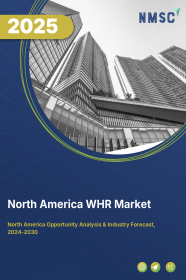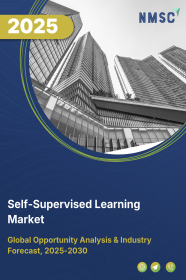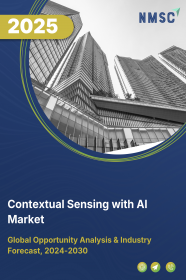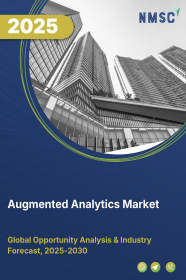
North America Wafer Handling Robots Market by Product Type (Vacuum Wafer Handling Robots and Atmospheric Wafer Handling Robots), by Number of Arms (Single Arm and Dual Arm), by Robot Type (Linear Robots, SCARA Robots, Articulated Robots, Cylindrical Robot, and Others), by Operation (Motor Driven and Belt Driven), by Installation (Free Standing and Integrated), by End Use (Integrated Device Manufacturer (IDM) and Foundries) –Opportunity Analysis and Industry Forecast, 2024–2030
Industry: ICT & Media | Publish Date: 15-Feb-2025 | No of Pages: 240 | No. of Tables: 182 | No. of Figures: 147 | Format: PDF | Report Code : IC2091
US Tariff Impact on North America WHR Market
Trump Tariffs Are Reshaping Global Business
North America Wafer Handling Robots Market Overview
The North America Wafer Handling Robots Market size was valued at USD 236.7 million in 2023, and is predicted to reach USD 567.3 million by 2030, at a CAGR of 12.5% from 2024 to 2030. Also, the U.S. wafer handling robots market size was 5767.0 units in 2023, and is predicted to reach 19306.0 units by 2030, with a CAGR of 17.9% from 2024 to 2030.
A wafer handling robot represents a specialized robotic solution designed to streamline the complex procedures inherent in semiconductor manufacturing. These robots demonstrate exceptional proficiency in executing precise movements and positioning tasks with fragile semiconductor wafers. Their significance lies in their pivotal role in the creation of top-tier integrated circuits and microelectronic devices.
Operating within pristine cleanroom environments, they incorporate a diverse range of end effectors, sensors, and vision systems to securely grasp, inspect, and manipulate wafers, all while mitigating the risks of damage or contamination. By seamlessly integrating with other fabrication equipment, these robots not only boost operational efficiency and minimize errors but also foster the consistent production of cutting-edge semiconductor technologies that power an extensive array of contemporary devices.
Government Investments in Semiconductor Research and Development Propel the Growth of the Market
The rising government investments in semiconductor research and development initiatives, exemplified by the CHIPS and Science Act of 2022 in the United States, play a pivotal role in advancing semiconductor manufacturing technologies, including wafer handling robots growth in the North American region.
Government initiatives aim to bolster domestic semiconductor manufacturing capabilities, enhance innovation, and maintain competitiveness in the global semiconductor market. By allocating funds for research and development, governments support the development of cutting-edge technologies and automation solutions that improve semiconductor manufacturing processes. As a result, there is an increased demand for wafer handling robots to support the efficient handling and processing of semiconductor wafers in North American semiconductor facilities, driving market growth.
International Collaborations in Semiconductor Sector Boosts the Market Growth
Furthermore, international collaborations, such as the U.S.-India Memorandum of Understanding, foster mutual growth in the semiconductor sector, increasing demand for wafer handling robots across North America. Collaborative efforts between countries facilitate knowledge sharing, technology transfer, and joint research initiatives, leading to advancements in semiconductor manufacturing technologies.
These collaborations create opportunities for semiconductor manufacturers to access new markets, expand their capabilities, and address emerging challenges. As the semiconductor industry continues to evolve and innovate, the demand for automation solutions like wafer handling robots increases, driven by the need for precision, efficiency, and scalability in semiconductor manufacturing processes.
Additionally, the rising adoption of electric vehicles (EVs) in response to environmental regulations and consumer preferences fuels demand for advanced manufacturing technologies, driving the need for semiconductor production equipment, including wafer handling robots, throughout the entire North American region.
High initial Cost Restrains the North America Wafer Handling Robots Market Growth
The considerable expense associated with wafer handling robots serves as a significant constraint on market growth. The upfront investment needed to procure, integrate, and upkeep these advanced automation systems represents a substantial financial burden for companies, particularly those with budget constraints. This financial hurdle has the potential to deter prospective adopters from entering the market or scaling up their automation capabilities.
Incorporation of Advanced Technologies such as Computer Vision and AI to Enhance Precision
Incorporating cutting-edge technologies such as Artificial Intelligence (AI), computer vision, and the Internet of Things (IoT) into robots presents extensive opportunities for market expansion.
These integrations empower wafer handling robots to streamline processes, increase operational efficiency, and enable predictive maintenance. AI algorithms play a vital role in refining robot movements, improving quality control by identifying defects in real-time, and predicting maintenance needs.
Computer vision ensures accurate handling of wafers and precise object recognition, even in complex operational settings, while IoT connectivity enables real-time monitoring, data exchange, and predictive maintenance, thereby reducing downtime.
Additionally, advanced safety features, data analytics capabilities, and enhancements in energy efficiency further underscore the importance of wafer handling robots as indispensable assets within the dynamic semiconductor manufacturing landscape.
The U.S. Holds the Dominant Market Share in North America Wafer Handling Robots Market
The increasing government investment in semiconductor research, development, and manufacturing initiatives is playing a pivotal role in shaping various aspects of the technology industry, including advancements in semiconductor manufacturing processes like wafer handling robotics. For instance, in July 2022, Congress passed the CHIPS and Science Act of 2022, a landmark legislation aimed at bolstering the domestic manufacturing of semiconductor chips in the US.
While the primary focus of the Act is on semiconductor chip production, it indirectly influences the broader ecosystem, including the technologies that support chip manufacturing. Furthermore, the growing collaboration between governments of different countries to expand the semiconductor industry is driving the market's growth.
For example, in March 2023, India and the United States entered into a Memorandum of Understanding (MoU) that paved the way for the establishment of a Semiconductor Sub-Committee as part of the Commercial Dialogue between the US Department of Commerce and India's Ministry of Electronics and Information Technology (MeitY) and Ministry of Commerce. This development creates opportunities for mutual growth, particularly in the semiconductor industry, thereby driving the demand for wafer handling robots.
Canada to Witness Substantial Growth in the North America Wafer Handling Robots Market
The growing adoption of electric vehicles (EVs) in Canada, spurred by stringent government regulations and initiatives, is directly influencing the demand for advanced manufacturing technologies in the EV industry, including wafer robots.
With Canada's aim to substantially reduce greenhouse gas emissions by 2035, with a focus on zero-emission vehicles, the automotive sector is transitioning towards EV production. This transition entails the manufacturing of various components, including semiconductor devices crucial for EVs, which, in turn, necessitates advanced manufacturing processes and automation.
Competitive Landscape
North America wafer handling robots industry comprises various market players, such as include Kawasaki Heavy Industries, Ltd., Nidec Instruments Corporation, Yaskawa Electric Corp., RORZE Corporation, DAIHEN Corporation, Hirata Corporation, Rexxam Co., Ltd., KUKA AG, ULVAC, Inc., and Stäubli International AG.
North America Wafer Handling Robots Market Key Segments
By Product Type
-
Vacuum Wafer Handling Robots
-
Atmospheric Wafer Handling Robots
By Number of Arms
-
Single Arm
-
Dual Arm
By Robot Type
-
Linear Robots
-
SCARA Robots
-
Articulated Robots
-
Cylindrical Robot
-
Others
By Operation
-
Motor Driven
-
Belt Driven
-
Stainless Steel Belts
-
Rubber Belts
-
Polymer Belts
-
By Installation
-
Free Standing
-
Integrated
By Wafer Size
-
Up to 100 mm
-
150 mm
-
200 mm
-
300 mm
-
Above 300 mm
By Semiconductor Process
-
Oxidation (Deposition)
-
Lithography
-
Etching, Cleaning, Polishing
-
Inspection & Testing
-
Assembly & Packaging
By End Use
-
Integrated Device Manufacturer (IDM)
-
Foundries
By Country
-
U.S.
-
Canada
-
Mexico
REPORT SCOPE AND SEGMENTATION:
|
Parameters |
Details |
|
Market Size in 2023 |
USD 236.7 Million |
|
Revenue Forecast in 2030 |
USD 567.3 Million |
|
Growth Rate |
CAGR of 12.5% from 2024 to 2030 |
|
Market Volumes in 2023 (units) |
5767.0 |
|
Volumes Forecast in 2030 (units) |
19306.0 |
|
Growth Rate |
17.9% |
|
Analysis Period |
2023–2030 |
|
Base Year Considered |
2023 |
|
Forecast Period |
2024–2030 |
|
Market Size Estimation |
Million (USD) |
|
Growth Factors |
|
|
Countries Covered |
3 |
|
Companies Profiled |
10 |
|
Market Share |
Available for 10 companies |
|
Customization Scope |
Free customization (equivalent up to 80 working hours of analysts) after purchase. Addition or alteration to country, regional, and segment scope. |
|
Pricing and Purchase Options |
Avail customized purchase options to meet your exact research needs. |
KEY PLAYERS
-
Kawasaki Heavy Industries, Ltd.
-
Nidec Instruments Corporation
-
Yaskawa Electric Corp.
-
RORZE Corporation
-
DAIHEN Corporation
-
Hirata Corporation
-
Rexxam Co., Ltd.
-
KUKA AG
-
ULVAC, Inc.
-
Stäubli International AG

















 Speak to Our Analyst
Speak to Our Analyst





















